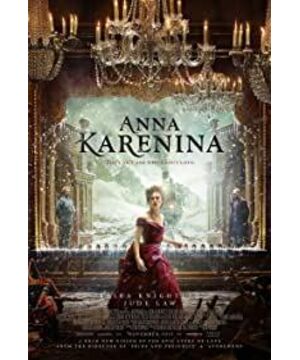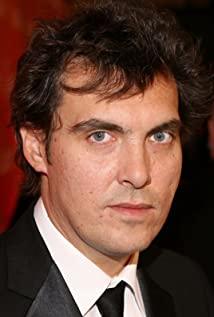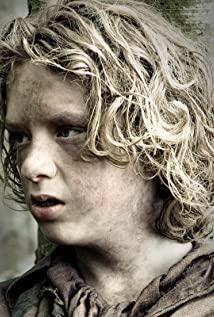Like many tragic female images in Chinese and foreign masterpieces, Anna Karenina’s character and life course also have its own complexity and legendary characteristics. Ophelia, La Traviata, Margarita, and even Du Shiniang in ancient China, they are some beautiful and passionate but ill-fated women, refined and elegant talents, and noble temperament that cannot be tolerated in the secular society. Under the heavy pressure of, they will inevitably become the spring mud at the bottom of the flower. They either have a noble identity or a distinguished personality, or they are open-minded or sensitive, but in the end the bright moon sinks in the blue sea, and their fresh lives are struggling with powerlessness. Return to silence. They both encountered love and lived in the cracks of society. They were under the shackles of religion and ethics. Rebels died tragically, and those who obeyed silently perished. But Anna’s difference is that between love and parent-child relationship, she has to choose one of the two. No matter how she chooses, she can only make sacrifices, and both of them are almost equivalent to women. Half of her life. In her family, she doesn't love her husband and hates it. After she met Wolensky, she resolutely chose love first: "I can't deceive myself anymore. I am a living person and I have no sin. God made me like this. I need love and life."
Looking back at Anna’s life trajectory, she has a simple family and a peaceful life. Anna is the wife of a person, the mother of a child, and the person the society wants her to abide by the morals. Voronsky's intervention is well-known as "love." The arrival of this so-called love took away everything from her. The extreme contradiction between ethics and love made Anna endure tremendous suffering. The power of love made her break through the world and seek her own happiness, but the sense of selfishness and guilt immediately came to her, filling her heart. Contradictions and pain. Anna and Volensky's love is like a prairie fire, burning raging, emotions completely control reason. She wants the complete love that belongs to her. She cannot continue to wander between her husband and lover. She is a materialist of love. Her love is beautiful and belongs to only two people. In the end, for love, she abandoned her husband and her lovely child, and went to another country with her lover to chase his love.
Taoists say that doing nothing is the highest state of life. When other colors are applied to the purity of love, this love is no longer perfect. But there is no right and wrong, there is no right or wrong, only rational and emotional struggle. The souls of Wolensky and Anna belong to two different spirits. Although they fell in love at first sight, they seemed so close to each other, it was impossible for them to merge together. When Anna was lonely and helpless, Wolensky chose to escape, he wanted to return to the colorful world he used to. The family is gone, and Wolensky has become more and more indifferent to her. Even her most beloved son is "close to her". The upper class does not accept her, and everyone refuses to associate with her. She has become in the eyes of people. Zhen's bad lady. Anna's feelings were keen and correct. Wolensky had already abandoned Anna mentally, but because of his conscience and responsibility he did not dare to do so. Anna fell completely into isolation and despair, and could no longer live in this extremely hypocritical and cold society.
When her husband used marriage and his son to restrain her feelings; when the lover Wolensky could not leave her environment and society to love her wholeheartedly, Anna was completely disappointed in her life and ideals. She had already endured too much sorrow and sorrow. Unfortunately, she needs no pain in the body and no interference in the soul. She used her way to find complete peace of mind. She chose freedom, sincerity, and courage. However, she violated the rules of the game of aristocratic society, religion, and ethics and became a rebel among the cold and selfish. Anna ended her life only because she was a sincere woman, a sincere woman in aristocratic society, and a sincere woman in aristocratic society under patriarchal society, so she could only choose to end her life.
When the oncoming train ran over Anna's young and weak body, we suddenly discovered that she was so fragile. What is really fragile is not the body, but the soul.
Anna lay down on the sleepers covered with sand and coal, and a once so moving, sincere, and energetic star of life crossed the sky, and finally fell on the railroad tracks where her love and hatred began.
Tolstoy did not end the novel with Anna's death, but with the ending of Levin's religious consciousness rebirth. When Levin talked about his unwillingness to live just to satisfy his own desires, he didn't mention Anna, but we can't help but think of her. Perhaps Tolstoy would prefer Anna to be like the naughty children of her brother and sister-in-law, who would destroy things for temporary pleasure, and Anna also pursued her true temperament and selfishness, causing destructive consequences. .
Tolstoy wrote this novel in just 50 days, but it took four years to revise the novel. From a "stumbled woman" at the beginning of creation, she became an image of a "judge" with elegant character and daring to pursue true love and happiness. It can be seen how much Tolstoy loves Anna, and that's why it appears in world literature. Such a full image and one of the most rebellious women.
PS: "Anna Karenina", I went to see the 2012 version today, directed by the famous British director Joe White, who has directed the two Oscar-winning films "Pride and Prejudice" and "Atonement". With "Shakespeare" "Love History" Oscar-winning Tom Stoppard served as the screenwriter, Keira Knightley, Jude Law, Aaron Taylor-Johnson and many other movie stars appeared in love. There have been 12 films adapted from the novel, and actresses such as Greta Garbo, Vivien Leigh, and Sophie Marceau have performed the role of "Anna Karenina". Volensky's enthusiasm awakened Anna's long-asleep love. Under the pressure of strong public opinion at the time, she fell in love desperately, and the tragedy of love unfolded.
Compared to Sophie Marceau and Garbo, I like Garbo's Anna more. That's beauty. The new version of "Anna Karenina" boldly tried a dramatic stage-style shooting style. The dance element played a vital role in the film due to the unique presentation of this film. Many beautiful features The lens, all kinds of slow advancement make the whole movie like a literary and elegant stage play! In 2012, when the British afternoon tea literature encountered Russian vodka literature, the love story written by Lao Tai also turned gorgeously. The skinny Keira (Anna) had more desires than affection, and was more in line with the present. The aesthetics of the silver screen, without the luxurious temperament and charm of the young women of the upper class in St. Petersburg and Moscow at that time, is still the eldest lady in Downton Abbey; the hypocritical and cruel Karenin in the original book has become a mature and forbearing affectionate gentleman, but a little chuff The playboy Volensky doesn't think he is cute. The form of the whole film is too expressive and the content is weak. After all, how can such a rich content of a big tome be understood in 2 hours.
The new version of "Anna" is absolutely top-notch visually, just like a moving oil painting. The entire film has a gorgeous visual effect that complements the glitzy era of the story. In addition, movie music is also a highlight, cello, violin, piano...they are endless, which can be called an auditory feast.
The classics can always be interpreted with new content in different times. Anna is still the same Anna, and she finally committed suicide by lying on the rails. There is no lack of large-scale sex scenes in the film, but the treatments are quite beautiful and dreamy. In addition, the new version strengthens Levin’s parallel story, which is not available in previous film adaptations.
Admire White's courage, adapting the famous book, daring to slant forward, but this is already the 13th edition after all. If you put aside the original work, the 2012 version of "Anna" can be regarded as a gorgeous love movement, worth seeing.
View more about Anna Karenina reviews











